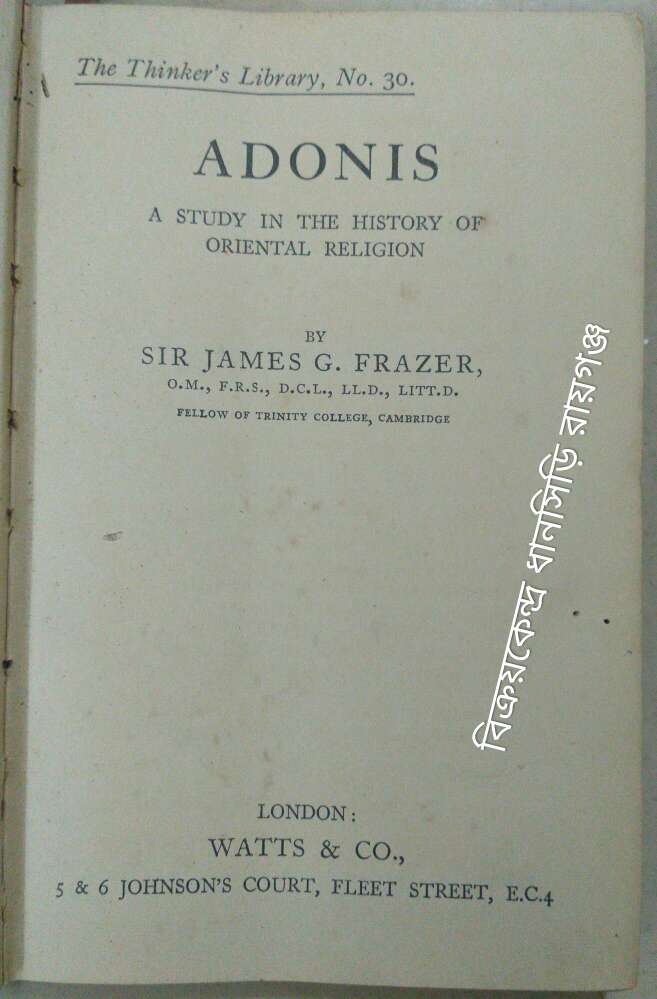Description
THE myth of Adonis was localized and his rites celebrated with much solemnity at two pines in Western Asia. One of these was Byblus on the coast of Syria, the other was Paphos in Cyprus. Both were great seats of the worship of Aphrodite, or rather of her Semitic counterpart, Astarte; and of both, if we accept the legends, Cinyras, the father of Adonis, was king. Of the two cities Byblus was the more ancient; Indeed it claimed to be the oldest city in Phoenicia, and to have been founded in the carly ages of the world by the great god El, whom Greeks and Romans identified with Cronus and Saturn respectively. However that may have been in historical times it ranked as a holy place, the religious capital of the country, the Mecca of Jeru salem of the Phoenicians. The city stood on a light beside the sea, and contained a great sanctuary of Astarte, where, in the midst of a spacious open court, surrounded by cloisters and approached from below by staircases, rose a tall cone or obelisk, the holy image of the goddess. In this sanctuary the rites of Adonis were celebrated. Indeed the whole city was sacred to him, and the river Nahr Ibrahim, which falls into the sea a little to the south of Byblus, bore in antiquity the name of Adonis, This was the kingdom of Cinyras. From the earliest to the latest times the city appears to have been ruled by kings, assisted perhaps by a senate or council of elders. The first of the kings of whom we have historical evidence was a certain Zekar-baal. He reigned about a century before Solomon; yet from that dim past his figure stands out strangely fresh and lifelike in the journal of an Egyptian merchant or official named Wen-Ammon, which has fortunately been pre served in a papyrus. This man spent some time with the king at Byblus, and received from him, in return for rich presents, a supply of timber felled in the forests of Lebanon. Another king of Byblus, who bore the name of Sibitti-baal, paid tribute to Tiglath pileser III., king of Assyria, about the year 739 B.C. Further, from an inscription of the fifth or fourth century before our era we learn that a king of Byblos, by name Yehaw-melech, son of Yehar-baal, and grandson of Adom-melech or Uri-melech, dedicated a pillared portico with a carved work of gold and a bronze altar to the goddess, whom he worshipped under the name of Baalat Gebal, that is, the female Baal of Byblus.




Be the first to review “Adonis A Study In The History Of Oriental Religion -By Sir James G.Frazer”
You must be logged in to post a comment.